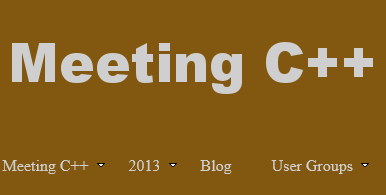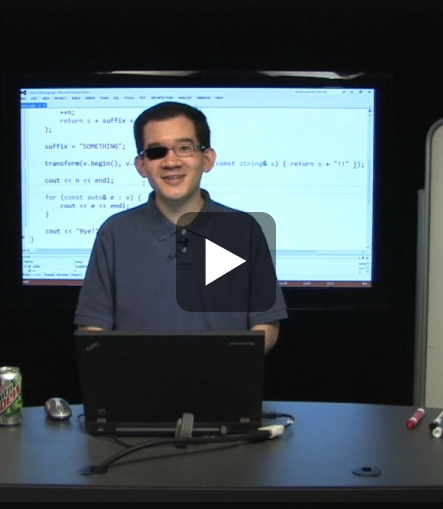LLVM 3.3 is released!
 You can download either the source or prebuilt executables from the LLVM web site
You can download either the source or prebuilt executables from the LLVM web site
Clang 3.3 includes full C++11 support, as well as a suite of run-time checkers to help find bugs in your programs.
For more information, check out the release notes for LLVM and for Clang



 New at InformIT:
New at InformIT: The solution to the latest GotW problem is now available:
The solution to the latest GotW problem is now available:
 The two latest C++ lectures by Stephan T. Lavavej, the eponymous STL, are now available:
The two latest C++ lectures by Stephan T. Lavavej, the eponymous STL, are now available: The keynote addresses for
The keynote addresses for